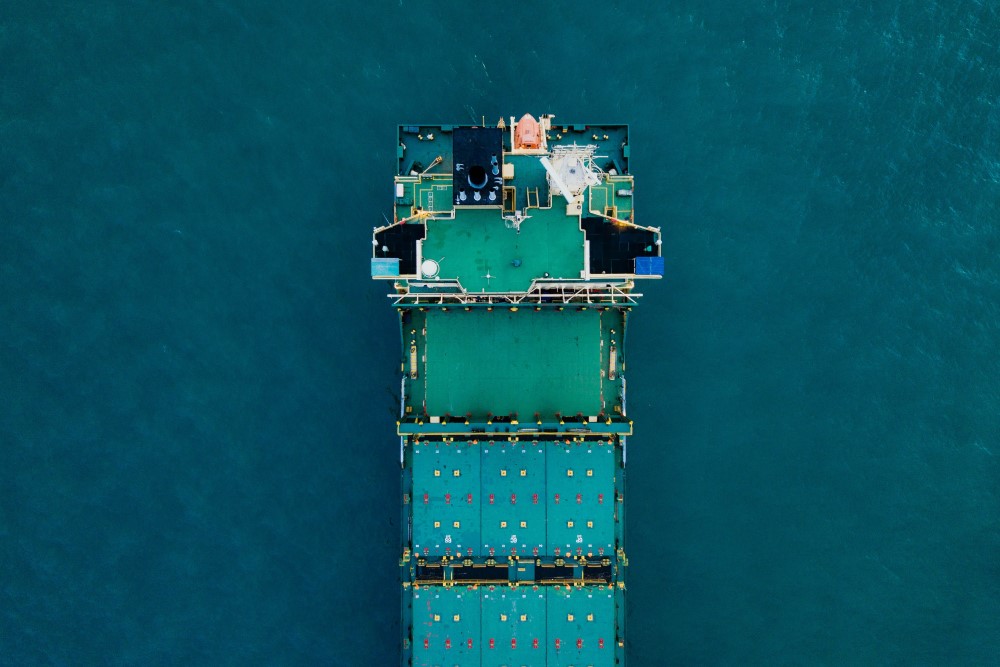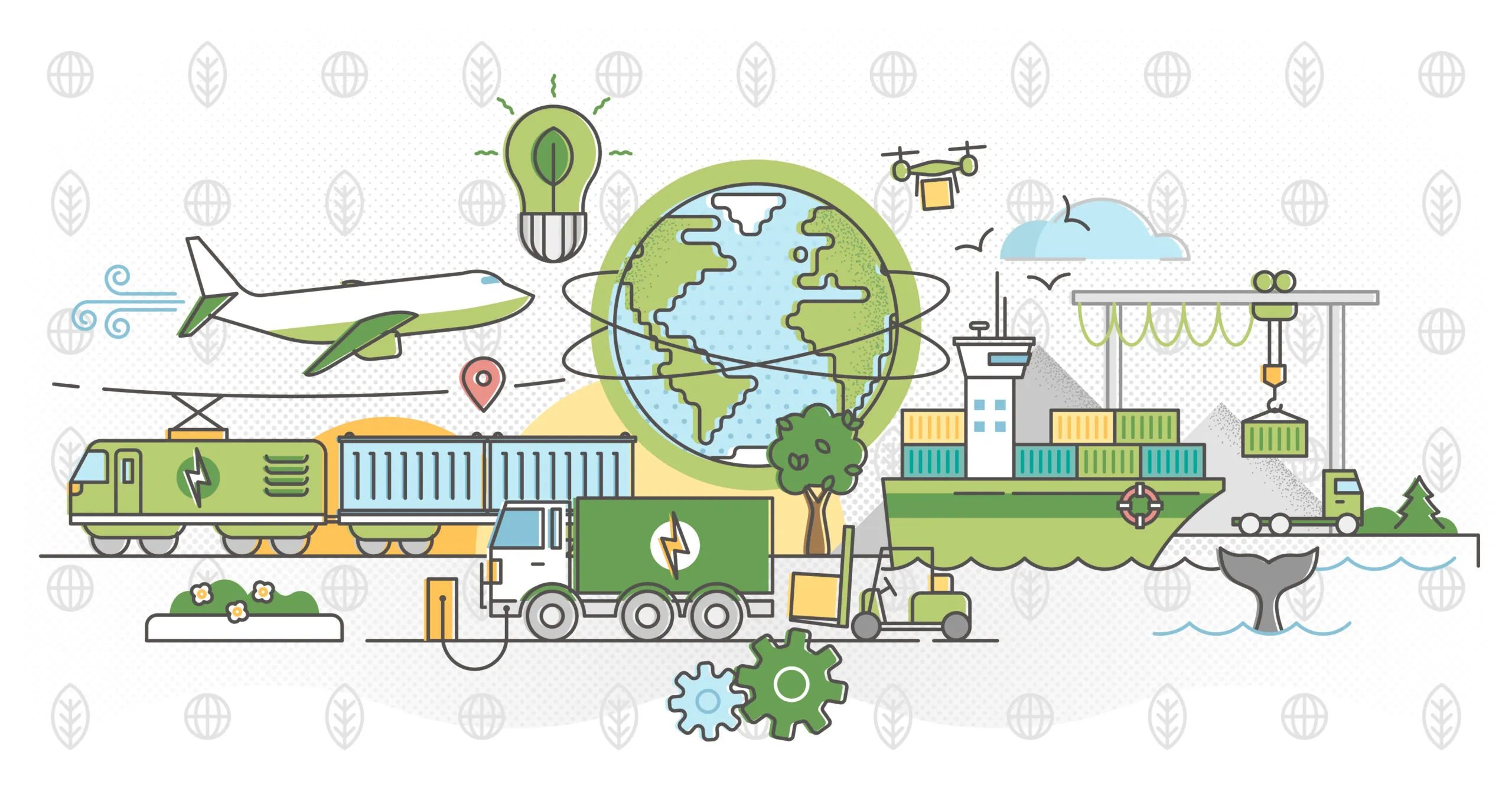The shipping industry is vital to global trade, with billions of tons of goods transported by land and sea every year. As the world becomes increasingly interconnected, companies have begun investing in innovative technologies and sustainable practices to reshape the future of the shipping industry. Transforming the shipping industry begins with revolutionizing logistics technologies and driving positive change for a more efficient and sustainable future.

Companies Changing the Future of the Shipping Industry
These ten companies are pioneering the way for greener, more efficient, and sustainable practices. Embracing green initiatives drives innovation and encourages the development of new technologies and solutions. By investing in research and development in environmentally ethical shipping and sustainable practices, companies can contribute to the advancement of the industry and position themselves as leaders in the field. This can lead to collaborations, partnerships, and positive industry recognition.
Maersk
As the largest container shipping company globally, Maersk is leading digital transformation and decarbonization efforts. Maersk has developed a software tool called “Eco Voyage,” which enhances supply chain logistics, transparency, and efficiency by utilizing real-time weather data to improve their fleet’s shipment schedules and fuel economy. Maersk aims to become carbon-neutral by 2050, focusing on alternative fuels for their on-land fleet and innovative vessel designs on their ships.
Tesla
Though notoriously known for revolutionizing the electric vehicle market, Tesla is now venturing into the shipping industry. The Tesla Semi is an all-electric semi-truck featuring advanced autonomous features that can enhance driver and public safety and optimize logistics. The Semi is said to have a range of up to 500 miles (around 800 kilometers) on a single charge. This would enable long-haul truckers to complete their routes without recharging frequently. The company aims to reduce emissions and improve efficiency in long-haul transportation.
Hybrid Air Vehicles
Airlander 10 represents a new, innovative Airlander 10 represents a new and innovative air shipping approach. Its hybrid design, large size, and versatility open up possibilities for various applications. With its low carbon footprint and potential to reach remote locations, the Airlander 10 has the potential to reshape the way we approach shipping cargo, fuel economy, and logistics in the future.
CMA CGM
CMA CGM, a major global shipping company, is investing heavily in sustainable initiatives. They have developed liquefied natural gas (LNG)-powered container ships, significantly reducing carbon emissions compared to traditional vessels. Additionally, CMA CGM is exploring new technologies, such as wind-assisted propulsion and biofuels, to reduce their environmental impact further.
Kuehne+Nagel
Kuehne+Nagel has committed to becoming carbon neutral by 2030. They are actively working to reduce their greenhouse gas emissions through fleet optimization, energy-efficient facilities, and alternative fuels. This includes optimizing transport routes, consolidating shipments to lower empty miles, and utilizing intermodal transport options to maximize supply chain logistics and efficiency. Additionally, the company has engaged in partnerships and projects focused on sustainable supply chain logistics.
Amazon
As the most well-known e-commerce giant, Amazon has tested the boundaries of logistics and delivery since its founding. A partnership with the E-Vehicle giant Rivian in 2019 has Amazon pushing the envelope again. Amazon has rolled out over 3,000 Rivian vans since last July and has committed to investing in nearly 100,000 by the decade’s end. Additionally, they are still growing their supply of drone technologies for last-mile deliveries, aiming to provide faster and more environmentally friendly shipping options.
Zipline
Zipline is a company specializing in the innovation of drone shipping of medical supplies to remote areas. They have successfully implemented their services in Rwanda and Ghana, providing life-saving healthcare products to underserved communities. Zipline’s innovative logistics and ecological approach could revolutionize worldwide emergency response and humanitarian aid delivery.
Navis
Navis is a software company offering advanced port and terminal operators solutions. Their cutting-edge technologies optimize container-handling processes, reduce congestion, and improve efficiency. Navis provides terminal operating systems (TOS) that enable terminals to manage and automate their operations. These systems help with vessel planning, yard management, gate operations, and equipment control. Navis TOS is designed to enhance productivity, optimize resource allocation, and improve overall terminal performance. Navis’ software enables better collaboration between various stakeholders, leading to smoother operations and enhanced productivity.
Aeros
The development of Aeroscraft and its unique capabilities have opened up possibilities for more efficient and environmentally friendly cargo transportation and various other applications. The Aeroscraft’s unique design and ability to hover and offload cargo vertically make it a valuable solution for industries such as oil and gas, mining, disaster relief, and construction. Using helium as a lifting gas, which is inert and abundant, reduces fuel consumption and lower carbon emissions. As the company continues to advance airship technology, it holds the potential to reshape the way we approach logistics technologies, mobility, and aerial operations.
HyperloopTT
HyperloopTT is a transportation technology company that aims to revolutionize how goods are moved through a high-speed, low-pressure tube system. By offering increased speed, efficiency, cost-effectiveness, and environmental sustainability, Hyperloop technology can transform the future of logistics technologies, reduce shipping times, and enhance global connectivity. As technology advances, it will be exciting to witness the integration of Hyperloop systems into the shipping landscape.
The shipping industry is undergoing a significant transformation driven by technological advancements and a growing focus on sustainability. The ten companies mentioned are at the forefront of this change, reshaping the shipping industry’s future through digitalization, automation, and eco-friendly practices. As they continue to innovate and collaborate, these companies are paving the way for a more efficient, transparent, and environmentally responsible shipping industry.



